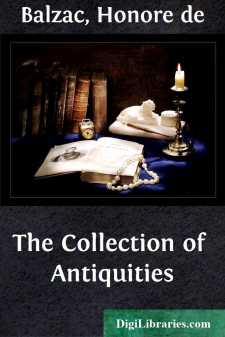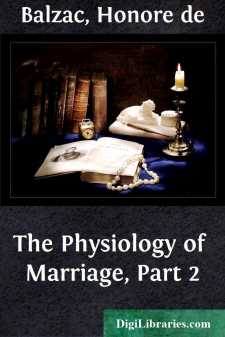Categories
- Antiques & Collectibles 13
- Architecture 36
- Art 48
- Bibles 22
- Biography & Autobiography 813
- Body, Mind & Spirit 142
- Business & Economics 28
- Children's Books 14
- Children's Fiction 11
- Computers 4
- Cooking 94
- Crafts & Hobbies 4
- Drama 346
- Education 46
- Family & Relationships 57
- Fiction 11828
- Games 19
- Gardening 17
- Health & Fitness 34
- History 1377
- House & Home 1
- Humor 147
- Juvenile Fiction 1873
- Juvenile Nonfiction 202
- Language Arts & Disciplines 88
- Law 16
- Literary Collections 686
- Literary Criticism 179
- Mathematics 13
- Medical 41
- Music 40
- Nature 179
- Non-Classifiable 1768
- Performing Arts 7
- Periodicals 1453
- Philosophy 64
- Photography 2
- Poetry 896
- Political Science 203
- Psychology 42
- Reference 154
- Religion 513
- Science 126
- Self-Help 84
- Social Science 81
- Sports & Recreation 34
- Study Aids 3
- Technology & Engineering 59
- Transportation 23
- Travel 463
- True Crime 29
The Collection of Antiquities
by: Honore de Balzac
Categories:
Description:
Excerpt
THE COLLECTION OF ANTIQUITIES
There stands a house at a corner of a street, in the middle of a town, in one of the least important prefectures in France, but the name of the street and the name of the town must be suppressed here. Every one will appreciate the motives of this sage reticence demanded by convention; for if a writer takes upon himself the office of annalist of his own time, he is bound to touch on many sore subjects. The house was called the Hotel d'Esgrignon; but let d'Esgrignon be considered a mere fancy name, neither more nor less connected with real people than the conventional Belval, Floricour, or Derville of the stage, or the Adalberts and Mombreuses of romance. After all, the names of the principal characters will be quite as much disguised; for though in this history the chronicler would prefer to conceal the facts under a mass of contradictions, anachronisms, improbabilities, and absurdities, the truth will out in spite of him. You uproot a vine-stock, as you imagine, and the stem will send up lusty shoots after you have ploughed your vineyard over.
The "Hotel d'Esgrignon" was nothing more nor less than the house in which the old Marquis lived; or, in the style of ancient documents, Charles Marie Victor Ange Carol, Marquis d'Esgrignon. It was only an ordinary house, but the townspeople and tradesmen had begun by calling it the Hotel d'Esgrignon in jest, and ended after a score of years by giving it that name in earnest.
The name of Carol, or Karawl, as the Thierrys would have spelt it, was glorious among the names of the most powerful chieftains of the Northmen who conquered Gaul and established the feudal system there. Never had Carol bent his head before King or Communes, the Church or Finance. Intrusted in the days of yore with the keeping of a French March, the title of marquis in their family meant no shadow of imaginary office; it had been a post of honor with duties to discharge. Their fief had always been their domain. Provincial nobles were they in every sense of the word; they might boast of an unbroken line of great descent; they had been neglected by the court for two hundred years; they were lords paramount in the estates of a province where the people looked up to them with superstitious awe, as to the image of the Holy Virgin that cures the toothache. The house of d'Esgrignon, buried in its remote border country, was preserved as the charred piles of one of Caesar's bridges are maintained intact in a river bed. For thirteen hundred years the daughters of the house had been married without a dowry or taken the veil; the younger sons of every generation had been content with their share of their mother's dower and gone forth to be captains or bishops; some had made a marriage at court; one cadet of the house became an admiral, a duke, and a peer of France, and died without issue. Never would the Marquis d'Esgrignon of the elder branch accept the title of duke.
"I hold my marquisate as His Majesty holds the realm of France, and on the same conditions," he told the Constable de Luynes, a very paltry fellow in his eyes at that time....






















